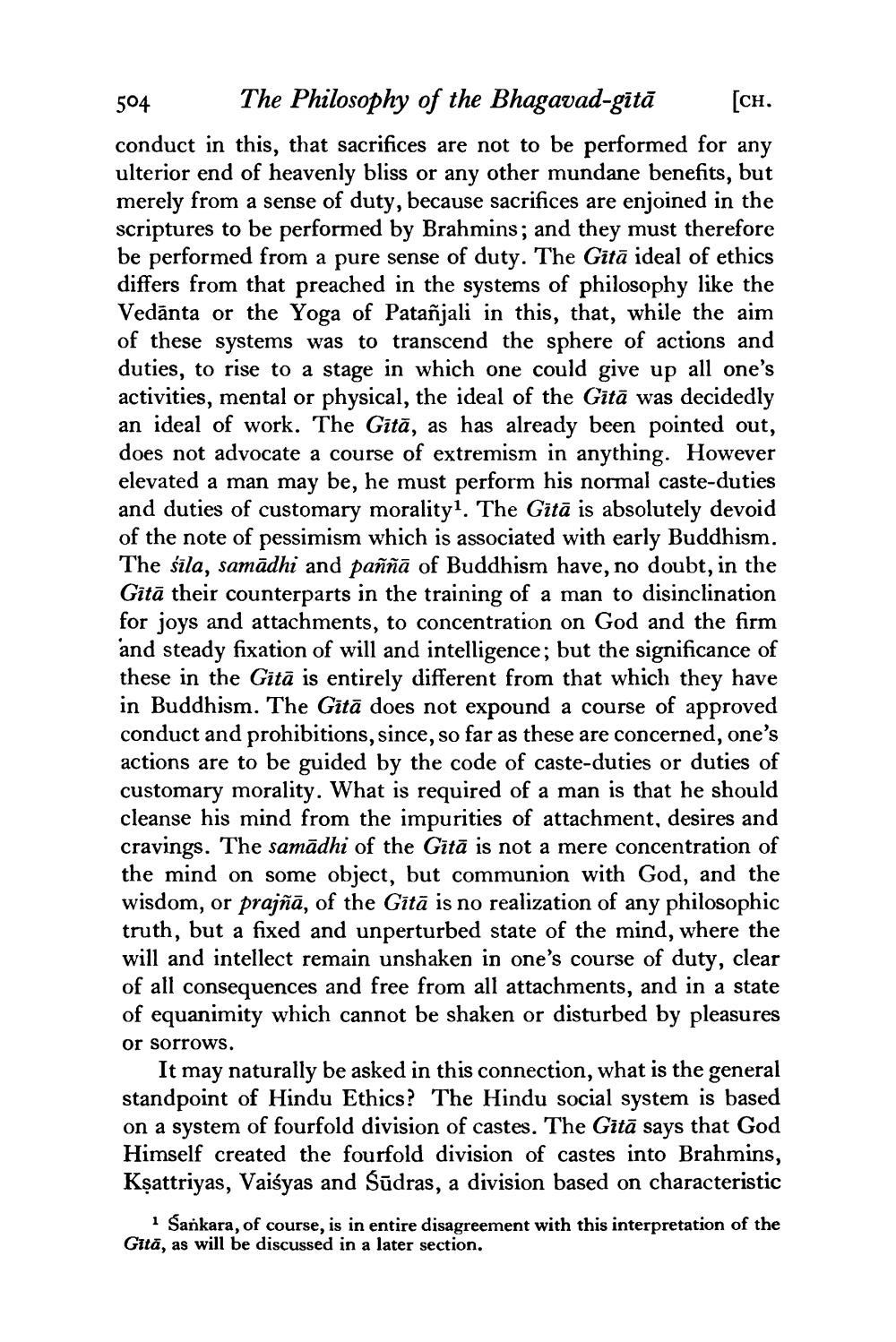________________
504
The Philosophy of the Bhagavad-gītā
[CH.
conduct in this, that sacrifices are not to be performed for any ulterior end of heavenly bliss or any other mundane benefits, but merely from a sense of duty, because sacrifices are enjoined in the scriptures to be performed by Brahmins; and they must therefore be performed from a pure sense of duty. The Gitā ideal of ethics differs from that preached in the systems of philosophy like the Vedanta or the Yoga of Patañjali in this, that, while the aim of these systems was to transcend the sphere of actions and duties, to rise to a stage in which one could give up all one's activities, mental or physical, the ideal of the Gitā was decidedly an ideal of work. The Gitā, as has already been pointed out, does not advocate a course of extremism in anything. However elevated a man may be, he must perform his normal caste-duties and duties of customary morality1. The Gita is absolutely devoid of the note of pessimism which is associated with early Buddhism. The sila, samādhi and paññā of Buddhism have, no doubt, in the Gitā their counterparts in the training of a man to disinclination for joys and attachments, to concentration on God and the firm and steady fixation of will and intelligence; but the significance of these in the Gita is entirely different from that which they have in Buddhism. The Gita does not expound a course of approved conduct and prohibitions, since, so far as these are concerned, one's actions are to be guided by the code of caste-duties or duties of customary morality. What is required of a man is that he should cleanse his mind from the impurities of attachment, desires and cravings. The samadhi of the Gitā is not a mere concentration of the mind on some object, but communion with God, and the wisdom, or prajñā, of the Gītā is no realization of any philosophic truth, but a fixed and unperturbed state of the mind, where the will and intellect remain unshaken in one's course of duty, clear of all consequences and free from all attachments, and in a state of equanimity which cannot be shaken or disturbed by pleasures
or sorrows.
It may naturally be asked in this connection, what is the general standpoint of Hindu Ethics? The Hindu social system is based on a system of fourfold division of castes. The Gitā says that God Himself created the fourfold division of castes into Brahmins, Kṣattriyas, Vaisyas and Sūdras, a division based on characteristic
1 Sankara, of course, is in entire disagreement with this interpretation of the Gītā, as will be discussed in a later section.




